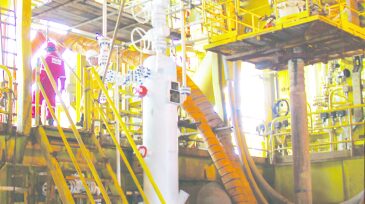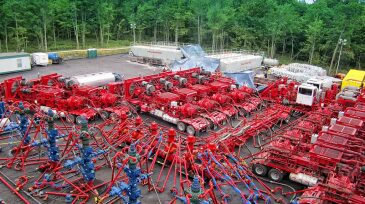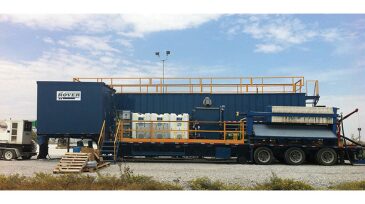Completions
Intelligent completions could improve many of the world’s oil and gas wells, but not all are suited to the technology. There is another option.
Casing deformation has emerged as a major challenge in China’s unconventional oil and gas fields, prompting the development of new solutions to address the issue.
The US supermajor is using one of its lowest-value hydrocarbon products to generate double-digit production increases in its most prolific US asset.
-
Facilities sand management is tasked with the goal of ensuring sustained hydrocarbon production when particulate solids are present in well fluids, while minimizing the impact of the produced solids on surface equipment. How to do that?
-
Unconventional resources are often in good supply, but difficult and expensive to develop. To develop unconventional resources, technologies like hydraulic fracturing and horizontal drilling are key, and higher oil prices will help.
-
This is the third article of a series on water management for hydraulic fracturing in unconventional resources. This month, water treatment technologies are introduced, beginning with the removal of suspended solids by coagulation/flocculation and electrocoagulation for recycling flowback fluids.
-
Intelligent completion systems have the ability to monitor and optimize reservoir performance in real time without mechanical intervention.
-
In this second article of a series covering water management in hydraulic fracturing (HF) in unconventional resources, the properties and characteristics of the flowback fluids are discussed, together with the general categories of technologies that are best suited to treat them.
-
Recently, Quicksilver Resources and Eni E&P, through its subsidiary Eni US Operating, began a common effort to optimize production and lift costs in the Alliance shale-gas field in the prolific Barnett shale play in Texas.
-
Many different completion techniques, such as vertical-well multiseam completions and multiple lateral wellbores drilled into a single coal seam, have been used to develop coalbed methane (CBM) reservoirs.
-
In the southern North Sea, many fields suffer from declining gas production because of reservoir-pressure depletion and associated liquid loading.
-
There has been remarkable growth in the coiled-tubing industry in North America, resulting largely from the shale revolution. This growth attracted numerous new players into the industry, in addition to the capacity additions made by the existing service providers.
-
Horizontal wellbores typically encounter inefficiencies caused by friction during drilling and completion operations.

![JPT_2025-09_GuestEd1_SS_382853197[4].jpg](https://assets.spe.org/dims4/default/d929328/2147483647/strip/true/crop/850x566+0+1/resize/850x566!/quality/90/?url=http%3A%2F%2Fspe-brightspot.s3.us-east-2.amazonaws.com%2F8a%2F95%2Fe4e82cb54fd597d497a5b1267f8a%2Fjpt-2025-09-guested1-ss-3828531974.jpg)











